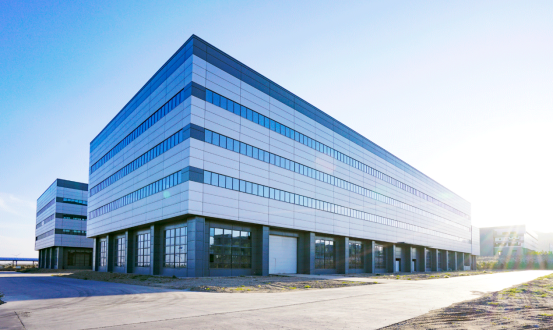As a major steel-producing country, China widely utilizes steel in industrial construction. Nowadays, many industrial buildings extensively employ rockwool sandwich panels as cladding wall panels. The appearance and functionality of these panels are closely related to factors such as climate. Rockwool sandwich panels offer high strength, light weight, excellent rigidity, strong deformation capability, large spans, short construction periods, good wind and seismic resistance, as well as environmental friendliness, energy efficiency, and reduced consumption. When selecting rockwool sandwich panels for industrial buildings, Wiskind reminds you to pay attention to some key points.

Surface Factors:
1. Firstly, examine whether the surface is smooth and free of pits. For corrugated panels, check the uniformity of the corrugations and the consistency of colors in the rockwool core material. Also, inspect for any loosening between the rockwool and color-coated steel sheets or any gaps between the panels and the rockwool.
2. Observe the substrate thickness and rockwool density. Common substrate thickness ranges from 0.4 to 0.6mm, while rockwool densities typically range from 50g to 100g.
3. When making a purchase, inquire about the rockwool density, heat conductivity coefficient, fire resistance temperature and duration, uniformity, and color. The heat conductivity coefficient should generally be ≤ 0.043 (W/m·K).
4. Tap the surface of the rockwool sandwich panels with your fingers or a hard object. Dull sounds or a lack of metallic resonance could indicate poor quality, whereas high-quality color-coated steel panels produce clear, resonant sounds.
5. Enquire about the manufacturer of the rockwool sandwich panels and opt for reputable brands for added product assurance. Wiskind is the leading rock wool sandwich panel manufacturer in China.
Internal Factors:
1. Fire Resistance: When selecting rockwool sandwich panels for industrial buildings, prioritize the fire rating of the product to ensure it meets firefighting requirements. Most rockwool sandwich panels achieve a B1 fire rating, with A-grade being the best. Wiskind rockwool sandwich panels can achieve A1 level fire protection. Corrosion Resistance: Industrial buildings may have specific requirements for corrosion resistance due to weather conditions or material processing. Choose panels with high corrosion resistance and good chemical stability to ensure overall durability.
2. Thermal Insulation: Some industrial buildings have strict temperature requirements. Select the appropriate core material thickness of rockwool sandwich panels to enhance the insulation performance of the building.
3. Waterproof and Airtight Properties: In areas prone to heavy rain or typhoons, attention should be paid to waterproof structures, joint forms, and materials when selecting rockwool sandwich panels. Additionally, Wiskind employs high-quality hydrophobic rockwool that is moisture-resistant and non-penetrable.
Wiskind's range of rockwool sandwich panels caters to various scenarios and requirements, providing tailored solutions. For instance, the Colorpod® sandwich panel features polyurethane-sealed edges on both sides, offering wind resistance and practicality. The Colorgold® sandwich panel boasts a fully high-density hydrophobic rockwool core to meet rigorous fire safety demands. Meanwhile, the Colorspar® sandwich panel with four-sided sealed edges ensures high installation accuracy and a sleek appearance. Colorcurtain® sandwich panels utilize high-quality roller-coated aluminum sheets for excellent corrosion resistance. Cassette™ sandwich panels feature non-penetrating, thermally broken constructions with outstanding performance. The Brilliant insulation curtain wall panel uses thermally broken aluminum profiles as frames, perfectly complementing glass curtain walls. In essence, whatever you desire, Wiskind has the solution for you!

Please read on, stay posted, subscribe, and we welcome you to tell us what you think.
 online service
online service +86-153 1435 3017
+86-153 1435 3017 market@wiskind.com
market@wiskind.com +86-153 1435 3017
+86-153 1435 3017